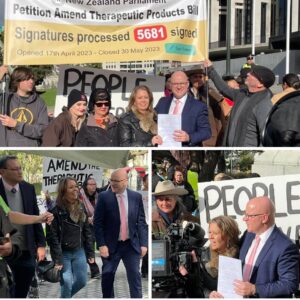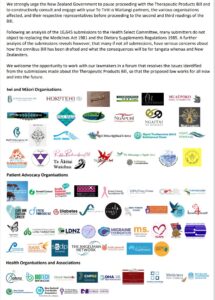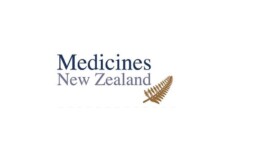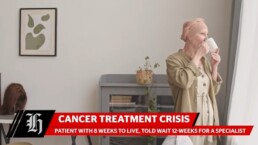Bitter pill: New report finds NZ lags behind in timely access to medicines
The Shawview Report, commissioned by Johnson & Johnson, is a valuable, timely round-up of the inherent problems in our medicines funding system and offers some good solutions, including innovative funding mechanisms in action in other countries, as well as the immediate need to fund Pharmac’s current backlog of approved medicines waiting for funding.
If you're contemplating taking a proactive approach to establish connections with politicians before the upcoming election, with the aim of advocating for issues related to Chronic Lymphocytic Leukaemia (CLL) including the deficiency of new medications and treatment protocols, these resources – the report and the interview featuring Brendan Shaw – represent invaluable tools to help assist you in this process.
Listen to the RNZ interview here: RNZ Shawview report interview
Here is the report
Dr Ruth Spearing - New CLL Advocates Trustee
We are delighted to announce that Dr. Ruth Spearing will be joining CLL Advocates as a Trustee.
Dr. Ruth Spearing is a highly esteemed haematologist and medical researcher with a keen focus on CLL. With over three decades of experience, she has led internationally acclaimed research in the field of blood cancers. In 2008, the Ruth Spearing Cancer Research Trust was established, providing invaluable support for haematology research in the South Island.
Throughout her career, Ruth has held various leadership positions, serving as a Board Member of the New Zealand Medical Association, a member of the Canterbury District Health Board Clinical Board, and as Chair of the Canterbury Hospitals Medical Staff Association.
Welcome, Ruth! We are honoured to have you as part of our team.
Health Technology Assessment Conference
Last week one of our CLLANZ Trustees, Catherine Isaac, was very lucky to have the opportunity to attend an international Health Technology Assessment conference HTAI Conference 2023 in Adelaide.
Among the 600 attendees from around the world were patient advocacy groups, researchers, academics, public policy makers, industry, and drug funding agencies.
There was quite a strong New Zealand presence, including other patient advocacy groups and Pharmac, and it was a good opportunity for us to build relationships and have some informal discussions during the conference breaks.
Overall, the conference was an amazing opportunity to learn from international best-practice models of patient involvement in medicines funding, and to make personal connections with individuals and organisations with similar objectives to ours.
A key theme was innovation in medical treatments, health system policy and patient care. We hope to use the lessons from this to make meaningful gains in improving the lives of New Zealanders living with CLL, through timely access to effective, international standard-of-care treatments.
CLL Advocates Newest Trustee
A very warm welcome to our newest CLL Advocates NZ Trustee, Diane Ward.
Regular followers of our Facebook group will know Diane well, and we’re delighted she’s willing to join the Board and contribute her skills and lived experience and her in-depth knowledge of CLL to our work.
Here is a little bit about the lovely Diane:
Diane Ward is a retired primary teacher, principal, and ESL teacher. She is well travelled and has lived and worked in several different countries.
She was diagnosed with CLL in 2018. It came as a shock and since then she has made a number of lifestyle changes. She has researched CLL and is passionate about fighting for the funding of drugs that are readily available in many other countries as first line treatment.
She would like everybody who is diagnosed with CLL to have a funded initial appointment with a specialist who could explain its intricacies.
Diane is a regular contributor to our Facebook group and is keen to encourage wider engagement in discussion and active support for our efforts to access better treatments for New Zealanders living with CLL.
Health Select Committee's report into the Therapeutic Products Bill
On Tuesday 14th of June, the Health Select Committee's report into the Therapeutic Products Bill was released. It can be accessed here: Therapeutic Products Bill final report
If you have had the chance to thoroughly review this report and have gained additional insights, please do to share your findings to: clladvocates@outlook.co.nz or via our CLL Advocates Facebook group: CLL Advocates Facebook group
We have a significant amount of information to cover, and we are particularly concerned about the future of New Zealand's clinical trial framework, especially regarding the absence of an equivalent to Section 29.
Therapeutic Products Bill Hikoi




New Zealand's Medicines Landscape 2022/23
Medicines New Zealand has today released the 2022/23 edition of their annual publication New Zealand’s Medicines Landscape. This edition sheds light on the significant cost of ill health to New Zealand and reiterates that New Zealand continues to rank last among the OECD countries for access to modern medicines.
A new report cited in the Landscape shows that New Zealand is in last place amongst OECD countries, with Hungary second to last, in terms of public health system access to modern medicines. New Zealand continues to lag well behind countries like Australia and the UK.
"New Zealand likes to compare itself to Australia and hopes to be better than them. It appears we need to lower our expectations when it comes to modern medicines access- so it's a case of ‘Goodbye Australia - Hello Hungary’ for us and our Health system’s access to modern medicines" says Dr Graeme Jarvis, CEO of Medicines New Zealand.
The Landscape also highlights that the over 80 medicines on Pharmac’s Options for Investment list remain in a state of limbo, for more than five years and counting on average, as they still wait for a funding decision to be made. This is despite the current Government providing some much-needed additional investment to help try and clear the list of medicines - many of which are standard of care in other OECD countries. This creates issues in New Zealand with inequity of access for patients, the health system, broader society and the economy. The country is therefore missing out on the benefits that the medicines could bring.
"It is well established that medicines play a critical role in any health system, allow patients and carers to go back to work and help reduce hospitalisation which may help relieve some of the hospital workforce issues. So it is somewhat surprising that they are not better valued as a critical tool within the health system and society here in New Zealand."
The Landscape also highlights solutions that could allow New Zealand to catch up with our peer OECD nations including the need for the development of a fit-for-purpose, future focussed Medicines Strategy. The need for a Medicines Strategy to be developed by February 2023 was also a recommendation from the Independent Pharmac Review Panel's final report. However, there is no sign of that Strategy being developed at all. Instead, the country is still waiting for it, just like it is for the many medicines on the waiting lists.
The 2022/23 edition of New Zealand’s Medicines Landscape can be found online here.
The PhRMA Report: Global Access to New Medicines Report can be found online here
Understanding the Importance of Screening for Skin Cancer While Living with CLL/SLL
Most individuals with CLL/SLL understand that the compromised immune system is the reason that an increased infection risk comes along with having the disease. But not as many are aware that secondary cancers, such as skin cancer, is also caused by an immune system that is no longer functioning at its best.
Read more here: Screening for Skin Cancer While Living with CLL/SLL
Time taken for Pharmac funding decisions ‘too long’, says Medicines NZ
It takes the nation's drug-buying agency, Pharmac, an average of 7.7 years to make funding decisions about potentially life-saving medicines, a report has found.
The Pharmac's Medicines Waiting Lists: Impacts on Patients in Aotearoa New Zealand report, commissioned by lobby group Medicines New Zealand found it took on an average nearly eight years to reach a decision on applications across all Pharmac lists.
Read the Stuff article here: Pharmac medicines waiting lists too long
Here is the full report: Pharmac Waiting Lists Report April 2023
Cancer patients harmed by ongoing treatment delays at Southern health board
In the first two months of 2021, 27 patients were harmed by cancer treatment delays, the Otago Daily Times reported.
Three became so sick while waiting they were unfit for treatment.
Have you been affected? Please email: newsdesk@nzherald.co.nz
Please read more here: Cancer patients harmed by treatment delays









